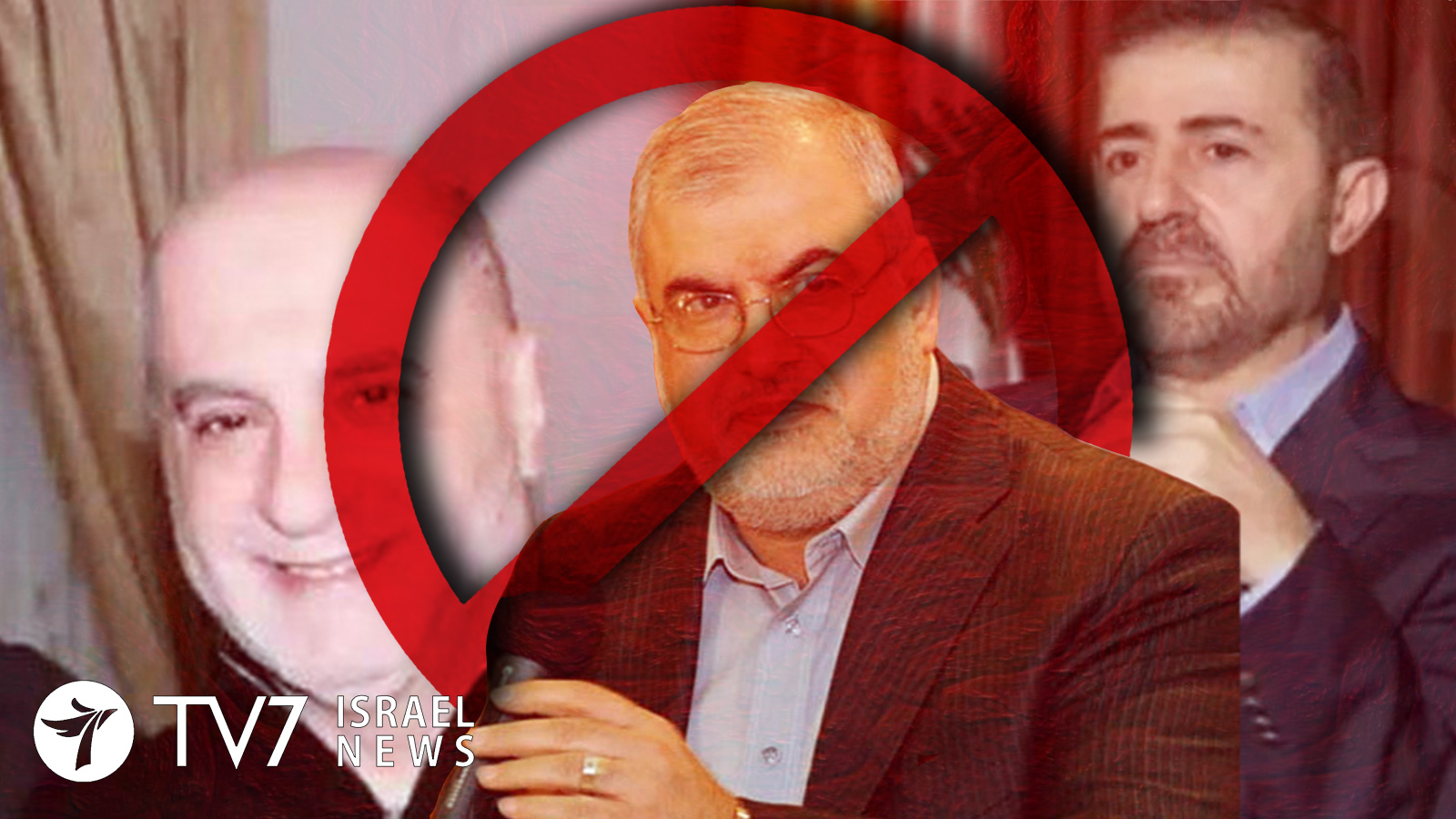The United States has for the first time targeted Hezbollah members of Lebanon’s parliament by placing them on the official U.S. sanctions blacklist for terror-related activity, along with a high-ranking Lebanese security official. The move came as Washington increases pressure on Tehran and its surrogates in the Middle East, including Hezbollah – which the U.S. believes to be actively engaged in terrorism.
Following the designation, a senior U.S. official declared “To any member of Hezbollah considering running for office, know that you will not be able to hide beneath the cover of political office.”
Hezbollah was founded with Iranian financial support in the early 1980s as a unified front of Lebanese Shiite factions, for the deliberate purpose of serving as Tehran’s proxy army for attacks against the neighboring Jewish State. It currently holds 13 seats in the Lebanese Parliament, and gained a third ministry – when the cabinet formed this past January – for the first time since joining the government in 2005.
The United States, Israel, Canada, Japan, the Netherlands, the United Kingdom, the Arab League and many others have designated Hezbollah in its entirety to be a terrorist organization.
50 Hezbollah members and entities have been blacklisted by the Treasury since 2017. The are banned from any dealings with U.S. individuals and businesses with a U.S. branch – including leading international banks; and also likely to see the freezing of any U.S.-held assets.
The most recent additions are MPs Amin Sherri and Muhammad Raad, and security official Wafiq Safa; penalized for “acting for or on behalf” of the group that remains Iran’s key regional emissary and fought in Syria for President Bashar Al Assad.
Under Secretary of Treasury for Terrorism and Financial Intelligence, Sigal Mandelker, elaborated that “Hezbollah uses its operatives in Lebanon’s parliament to manipulate institutions in support of the terrorist group’s financial and security interests, and to bolster Iran’s malign activities.” She added that “Hezbollah threatens the economic stability and security of Lebanon and the wider region, all at a cost to the Lebanese people,” and said “The United States will continue to support efforts of the Lebanese government to protect its institutions from exploitation by Iran and its terrorist proxies, and to secure a more peaceful and prosperous future for Lebanon.”
An unnamed senior U.S. official said current developments demonstrate that the “gloves are well and truly off” in Washington’s campaign to prevent Iran and Hezbollah from using Lebanon as a “forward operating missile base” in the region, presumably toward Israel.
The first sanctioned lawmaker, Muhammad Raad, heads Hezbollah’s parliamentary bloc with overall administrative and decision-making authority. The 64-year-old has been an MP since 1992, and belonged to the terror group’s highest command known as the Shura Council since 2009. U.S. officials say Raad also acted as a ‘Hezbollah enforcer’ to make certain its parliamentarians carry out its objectives.
The second Hezbollah MP, Amin Sherri, 62, was first elected to Lebanon’s parliament in 2005. The US Treasury charged that he acts at the direct behest of the terror group’s Secretary General Hassan Nasrallah, and provided specific incidents in which he engaged in intimidation in the wake of previous sanctions. The U.S. source revealed that “Sherri’s behavior threatening bank employees and their family members is unacceptable for a member of parliament whose office should advance the interests of the Lebanese people.” Washington also said it has photographic evidence of Sherri meeting with the commander of the Iran’s Islamic Revolutionary Guards Corps, Qassem Suleimani.
Top Hezbollah official Wafiq Safa, who is known close associate of Hezbollah Secretary General Hassan Nasrallah, was the third to be most recently blacklisted. The Treasury alleged he is a lynchpin for Hezbollah’s shipment of illegal weapons and drugs, saying “As the head of Hezbollah’s security apparatus, Safa has exploited Lebanon’s ports and border crossings to smuggle contraband and facilitate travel on behalf of Hezbollah. Safa was also accused of managing the terror group’s ties to financiers.
Sanctions were not implemented against Iranian Foreign Minister Mohammad Javad Zarif, despite June 24 statements from Treasury Secretary Steven Mnuchin that Iran’s top diplomat would be added to the list “later this week,” amid escalating tensions in the Gulf. According to a senior administration official, “We are obviously exploring … various avenues for additional sanctions on Tehran. Obviously Foreign Minister Zarif is a figure of key interest.”
Hezbollah and Beirut were swift to blast the U.S. blacklisting. Lebanon’s Finance Minister Ali Hasan Khalil tweeted that the move was “unjustified,” and should “concern all of the Lebanese even if they are directed at Hezbollah.” Hezbollah MP Ali Fayyad told the country’s MTV news station the U.S. decision “is a humiliation for the Lebanese people,” and demanded that the government follow through with a formal condemnation.
Even more scathing reaction is expected, following the announcement from terror chief Hassan Nasrallah that he will appear on the Hezbollah Al-Manar television network on Friday.
